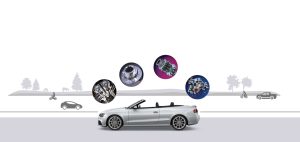It will not be long before medical residents finishing up their residencies in 2020 start looking for jobs in earnest. Some will approach the job search having not yet settled on a specialty. Others will know what they want but might look for jobs based on little information and plenty of bias.
Consider, if you will, emergency medicine jobs. Emergency medicine is a specialty that requires a certain kind of mindset. It requires a willingness to work in a certain kind of environment under conditions that may not always be ideal. And yet, how much do med students and residents really know about emergency medicine when deciding if it is the right specialty for them?
Emergency Medicine Biases
The AMA website published a fascinating piece from contributor Brendan Murphy this past January. The piece was a discussion on how specialty stereotypes influence the decisions new doctors make about their career paths. Murphy wrote at length about bias and how it affects specialty choices.
Murphy specifically cited the example of a new doctor allowing bias to affect his decision about emergency medicine. He explained how that doctor could get a more objective look at the specialty so as to counteract any biases he might already possess. It is a fascinating piece that is well worth reading.
For the purposes of this discussion, it is important to acknowledge that bias and stereotypes do exist in relation to every medical specialty. Emergency medicine is no exception. Just step back and think about it for one minute. How much do you know about emergency medicine? Have emergency medicine jobs ever been part of your experience?
Unfortunately, a lot of the bias and stereotypes surrounding emergency medicine come from Hollywood. Countless TV dramas paint a picture of the average emergency room that is anything but reality. That leads to very definite biases:
Emergency medicine is always action-packed and high pressure
Nearly every case is a life-and-death scenario
Only doctors willing to take risks survive in the ER
Politics make the ER an every-man-for-himself environment.
Some of what is observed on TV is accurate, some of the time. But by and large, common stereotypes of emergency medicine are nowhere close to being universally accurate. So how do we counteract them? Murphy says the best way is by going right to the source.
A Real-World Look
The most effective way to get an objective look at emergency medicine jobs is through real world experience. A real-world look eliminates all of those stereotypes and addresses every single bias. Murphy suggests new doctors interested in emergency medicine go immerse themselves in it. He recommends shadowing an ER doctor on rotation, talking with other residents already involved in the ER, looking for a good mentor in the field, and so forth.
Immersion is a strategy that has proven amazingly effective for learning languages. It works very well for teaching tradesmen their trades. Knowing what we know about the immersion concept, it makes sense for new doctors interested in emergency medicine to go immerse themselves in it during their residencies. Total immersion is the best way to get that objective, real-world look at what it is like to practice in the ER.
In the absence of immersion opportunities, a new doctor could work for a year or two as a locum tenens provider specializing in emergency medicine. A few years as a locum can really open a doctor’s eyes to what a real-world ER is like. It is nothing like those Hollywood emergency departments that have managed to create so many unrealistic stereotypes and biases.






More Stories
Rapid Mental Health Insights With AI-Powered Paper Summaries
4 Key Steps to Summarizing Animal Health Blogs for Easy Consumption
“PicoLaser: Revolutionizing Skincare with the Power of Picoseconds”